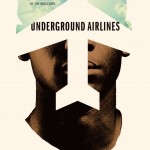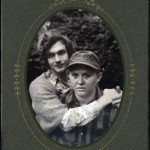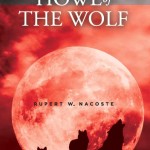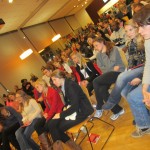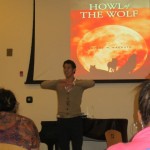Underground Airlines is an American horror story.
 Imagine the horror of an America that still has slave-states in the age of the internet, cell phones and I-phones. What would that look like?Â
 As Ben Winters imagines, that would be an America with the “Hard-Four.â€Â Four states of the “united†States where enslavement of black people is legal. In Mr. Winter’s imagination, to end the Civil War that would be an America that capitulated to the interests of slaveholding states. And that capitulation would come in the form of a constitutional amendment protecting slaveholding in those states forever.
 What would that mean? How would that work? As Ben Winters imagines, that would be an America with hard borders between slave-holding and slavery-illegal states of the “United†States.
 How would that feel? As Ben Winters imagines, that would be an America where enslaved human beings did not all accept their lot; some would be angry and always trying to escape to a non-slavery state. Victor, a black man and a slave bounty hunter describes it this way:
 “When I looked up again at the people… going about their bustling midday business, shopping and eating and chatting, I did not see the white people, only the black: and as I watched I swore I could see fumes rising from [the black peoples} mouths—fumes rolling out of their mouths like exhaust, and I would see that every black person had the same small cloud of angry smoke coming out of his or her mouth and nose, a haze rolling off the street like exhaust, filling the air, the white people breathing all that and not knowing it.â€
 Underground Airlines is a reminder of what as a nation we avoided by defeating an inhuman, inhumane impulse. But it is also a novel that points to the unavoidable and real legacies of our nation’s history of having once enslaved human beings. This well written, compelling, mystery novel, points to the real leftovers from slavery; an American psychology filled with racial stereotypes and irrational fear that continues to hibernate in our nation.
 Ben Winters main character, Victor, is a black man caught in the system, and used as a slave catcher. At one point that character has a revelation about segregation. He thinks to himself
“It took me some time but I know the secret now. Freedman Town [a city ghetto] serves a good purpose—not for the people who live there, Lord knows; people stuck there by poverty, by prejudice, by laws that keep them from moving or working.  Freedman Town’s purpose is for the rest of the world. The world that sits… with dark glasses on, staring from a distance, scared but safe. Create a pen like [Freedman Town], give people no choice but to live like animals, and then people get to point at them and say ‘Will you look at those animals? That’s what kind of people those people are. And that idea drifts up and out of Freedman Town like chimney smoke; black gets to mean poor and poor to mean dangerous and all the words get murked together and become one dark idea, a cloud of smoke, the smokestack fumes drifting like filthy air across the rest of the nation.â€
 Appearing now, with all the racial, intergroup, neo-diversity, turmoil of our time, Ben Winters’ novel is a clarion call to all of us to pay attention. Pay attention because there but for the moral thinking and actions of American heroes, there goes a horror-story-America with the “hard-four.â€Â Especially today, in the continuing struggle, pay attention, because right now too many in America are leaning toward accepting their-own psychological enslavement.
Â

